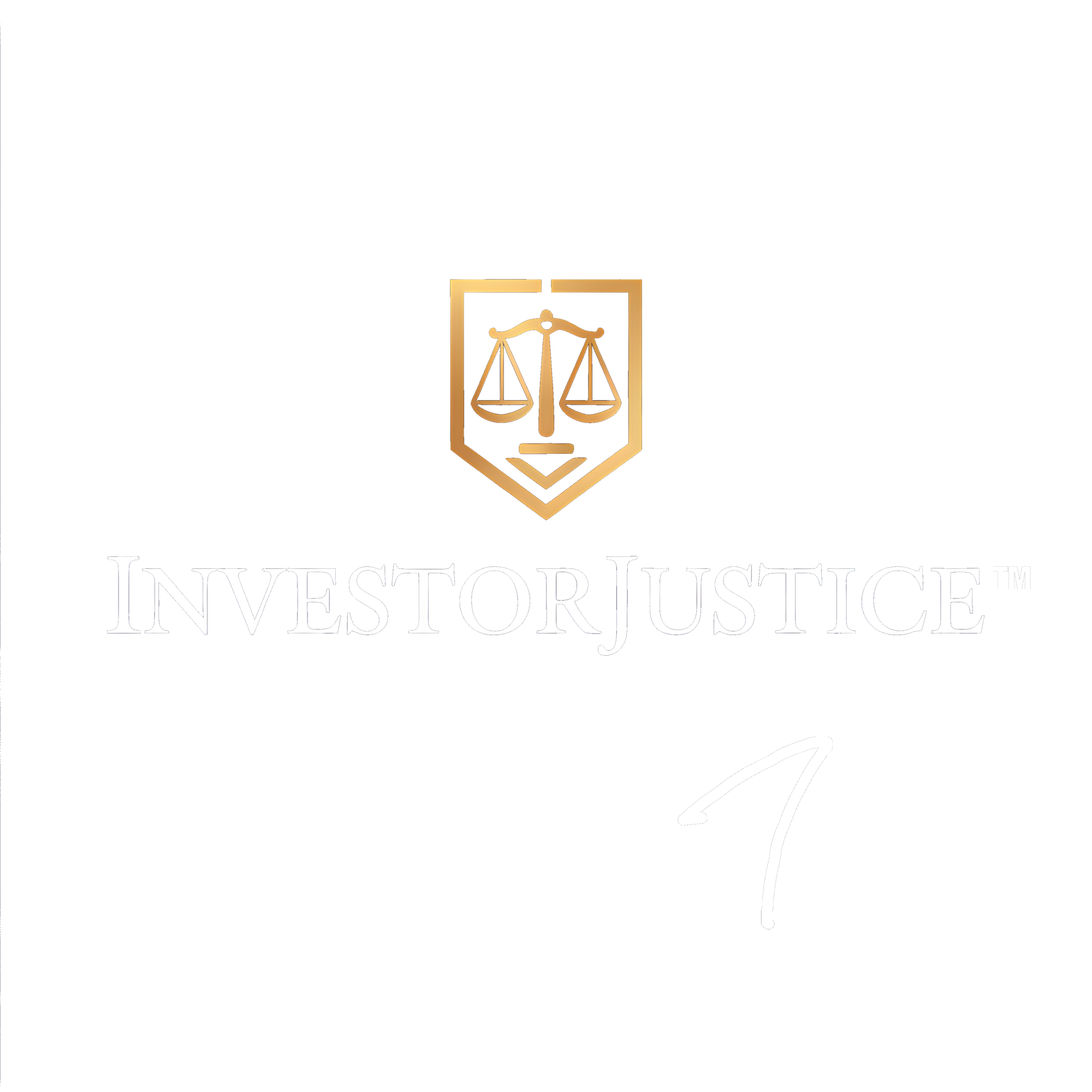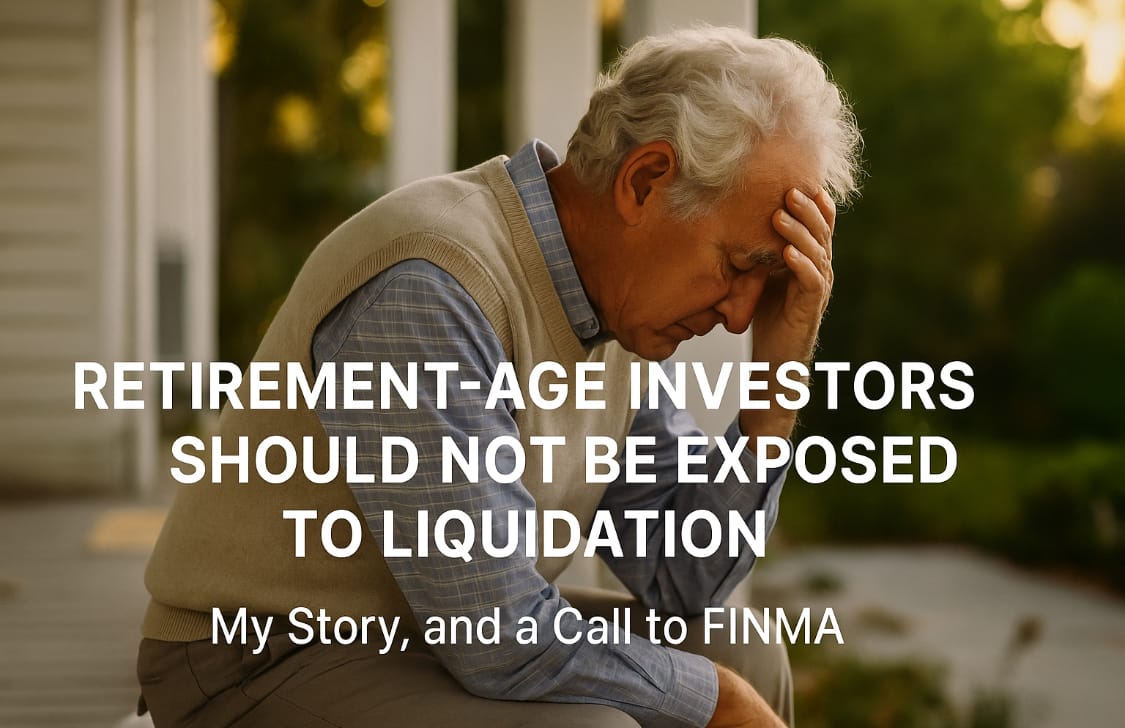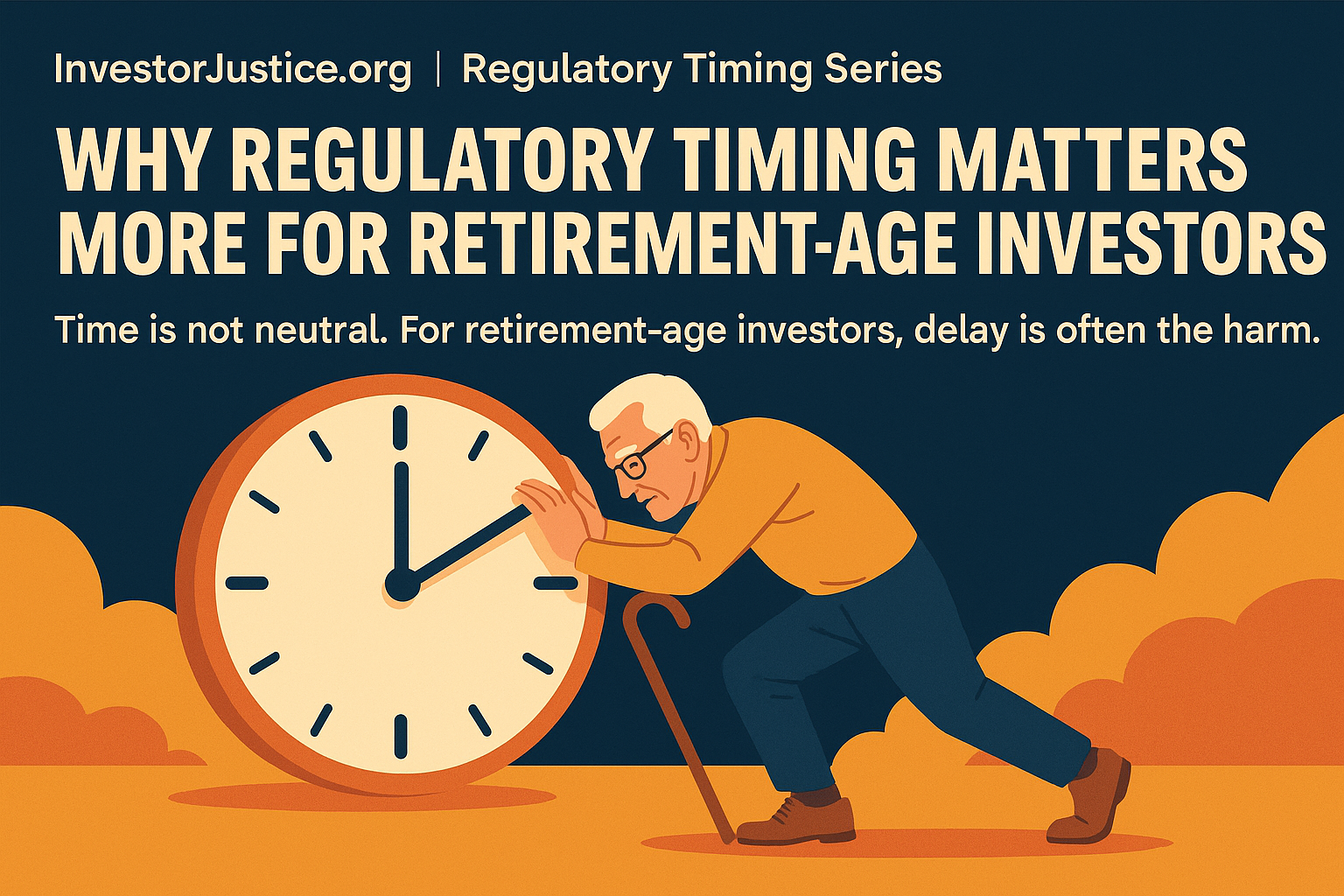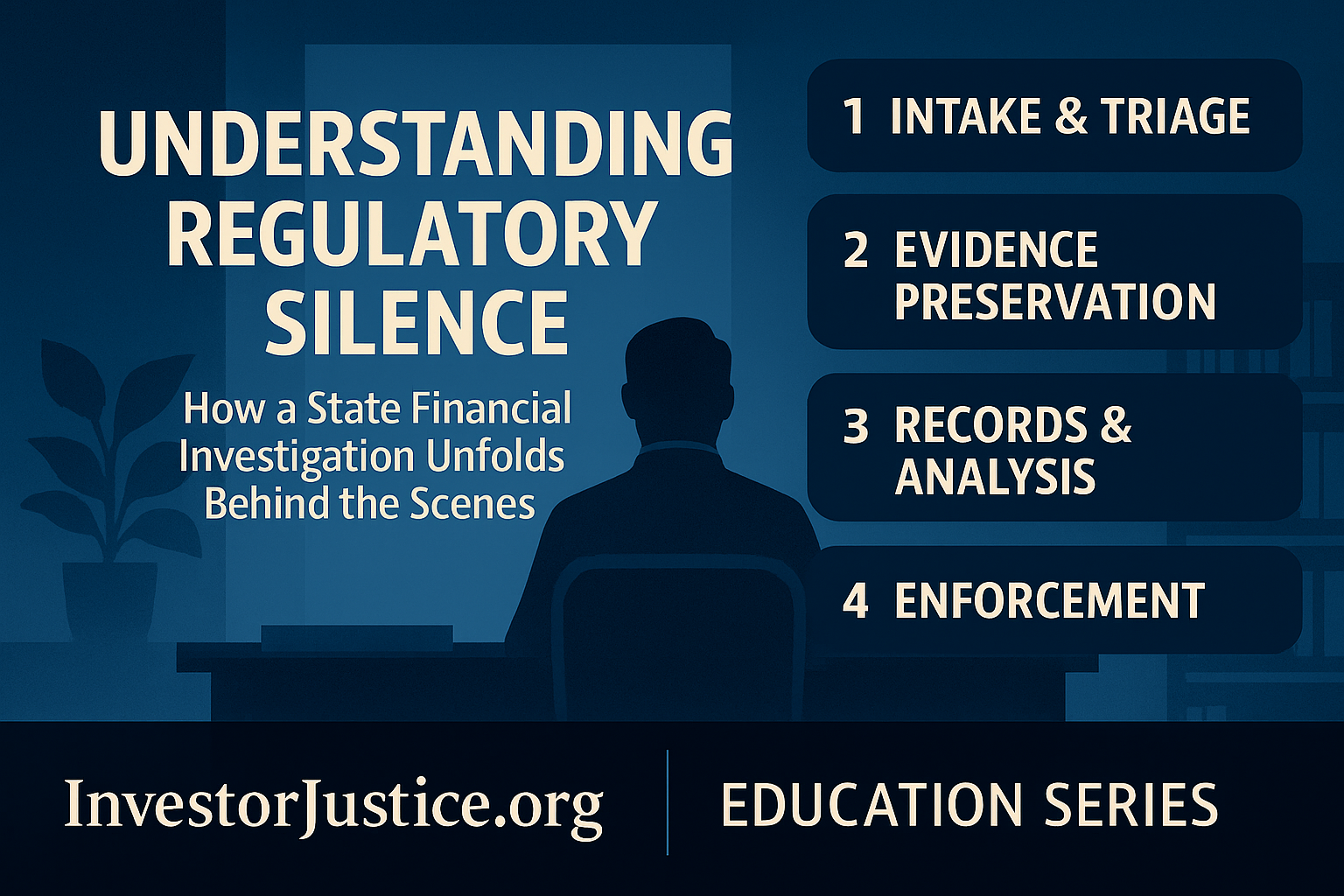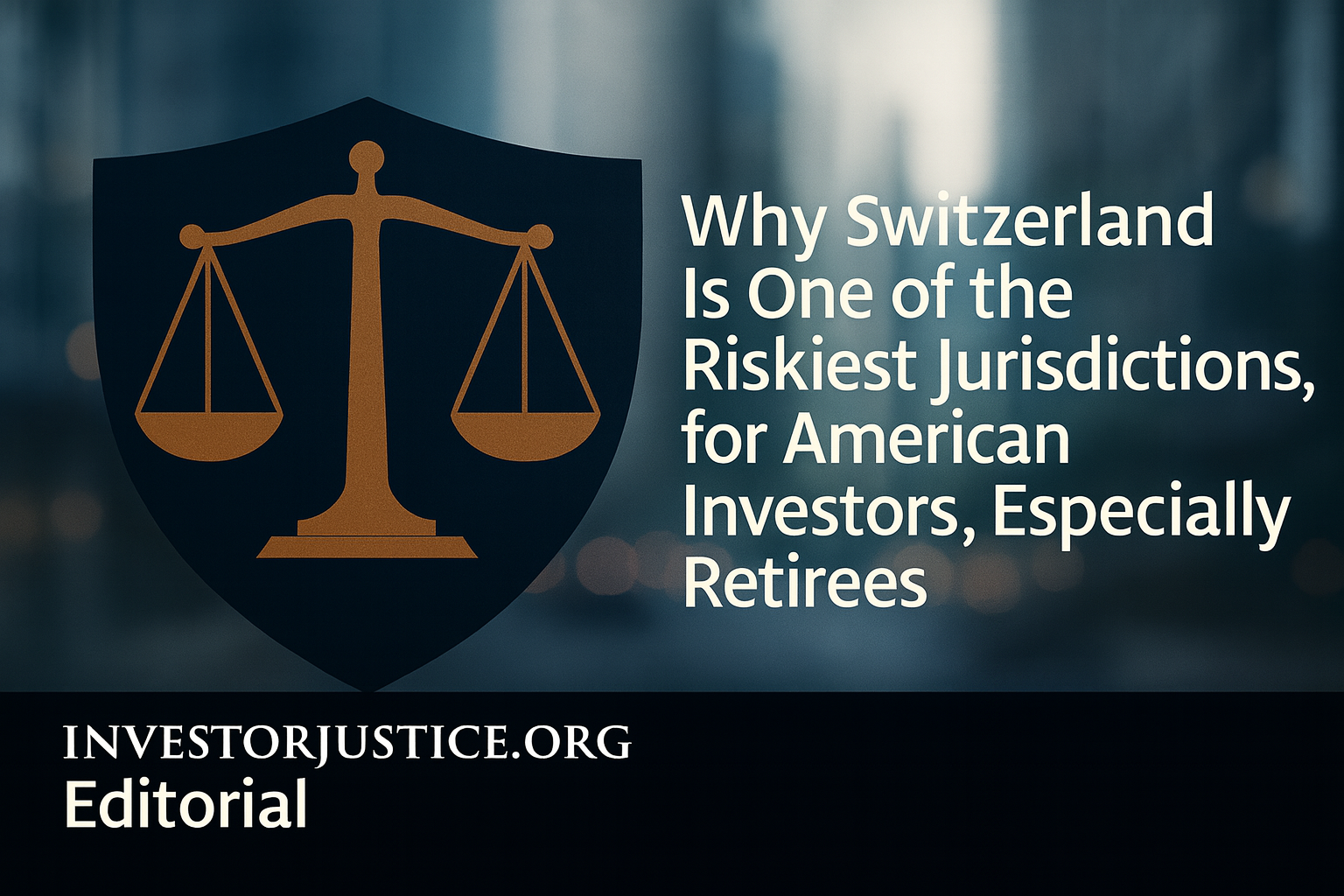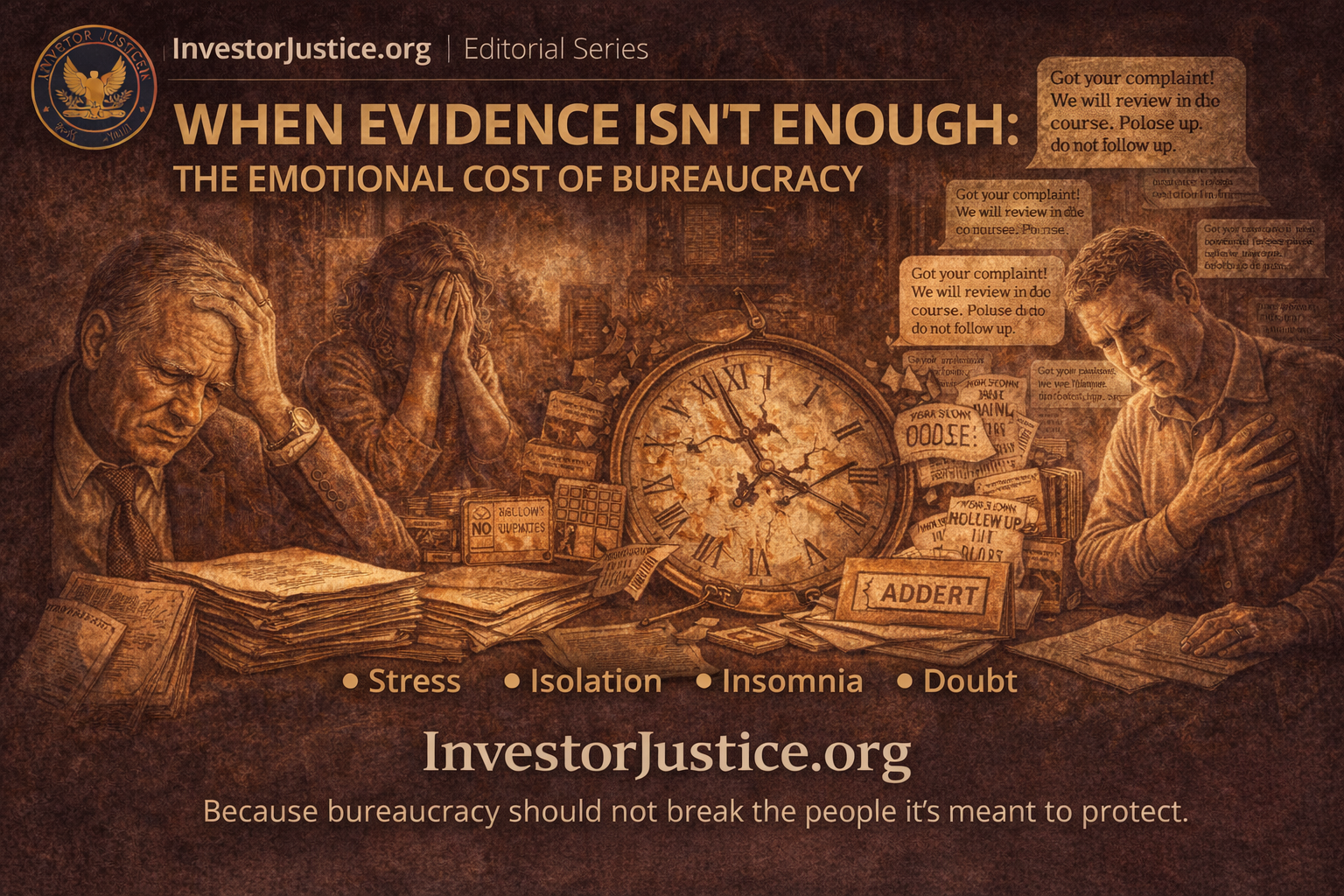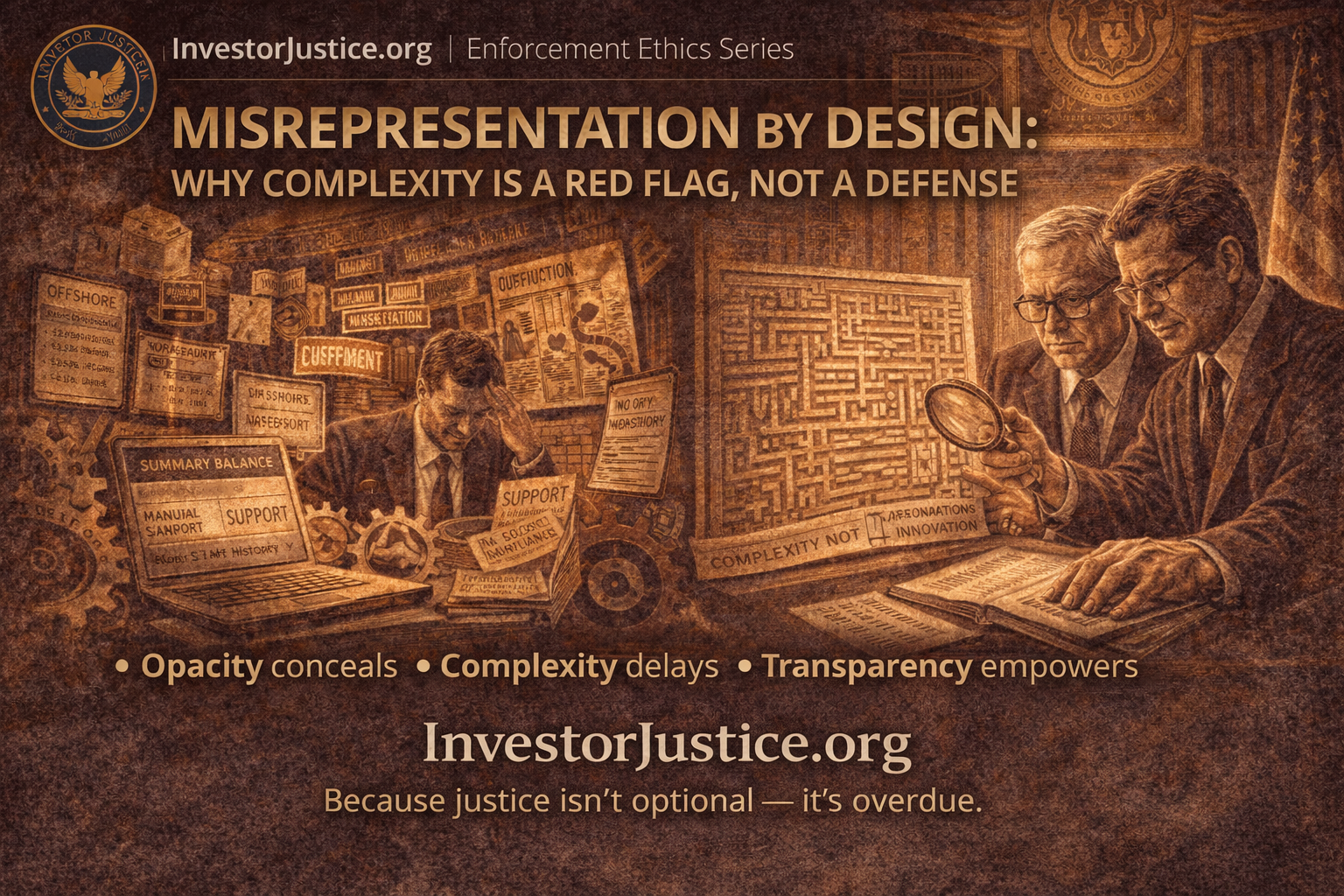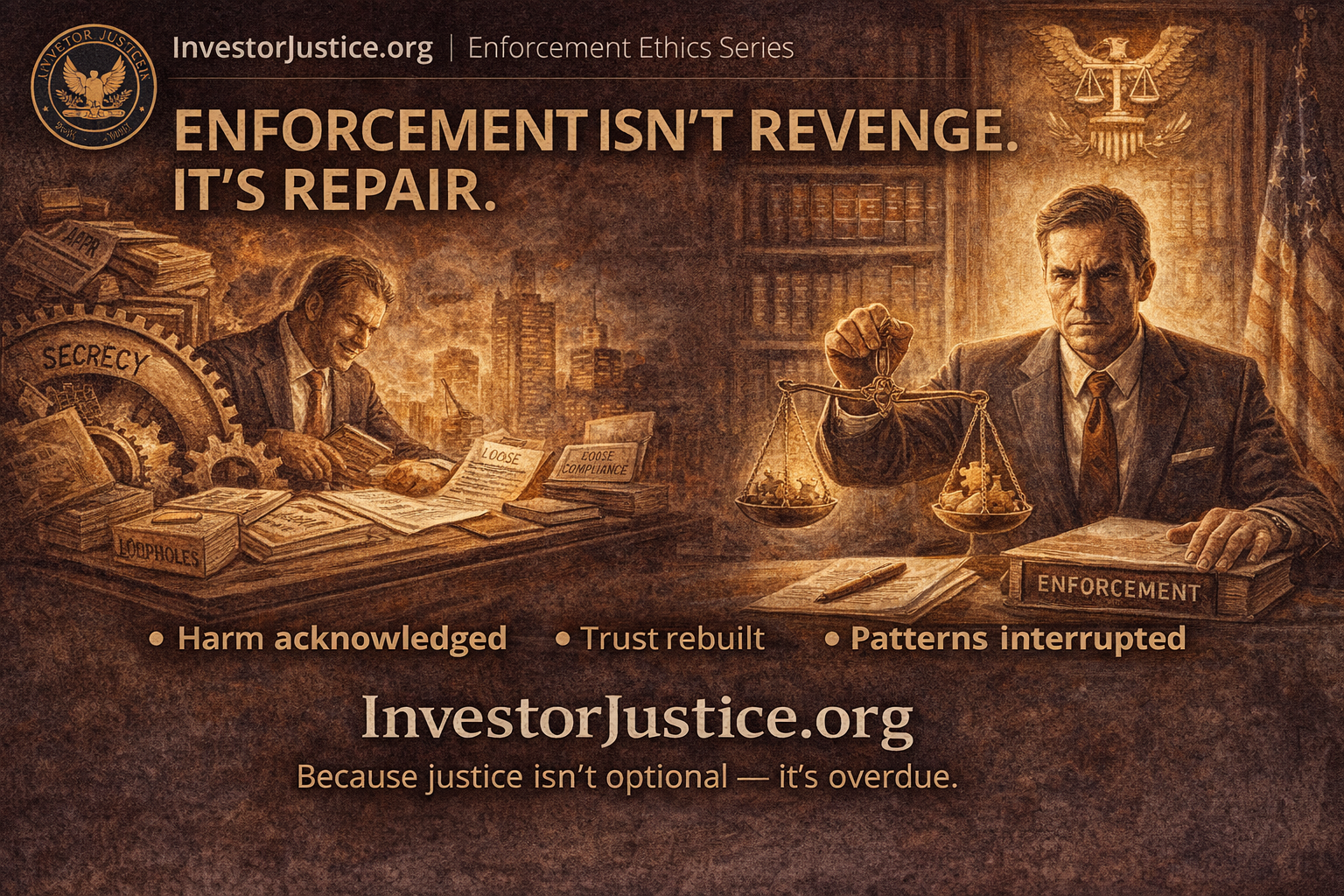Table of Contents
Respondents: Nexo AG; FINMA; U.S. SEC
Dossier: /case-2025-000001/
All posts: /tag/case-2025-000001/
Status: Open
Last updated: October 3, 2025
I was over 60 when I opened my account with Nexo. Believing they were a Swiss-protected private bank, I invested my lifetime earnings into what I thought was a safe retirement investment with stable interest income.
But like other retirement-age investors before me, my account was subject to liquidation—and I had no idea.
My holdings doubled before the market downturn. The fact that I did not exit my position before it crashed is clear evidence I didn’t understand I was in a liquidatable position.
I only learned my account could be liquidated when I received a margin call. At that point, the equity was so depleted that meaningful recovery became impossible—especially for someone of my age and experience level.
Today, I am 65, living in California, and nearly out of financial resources after almost three years of unresolved legal efforts. Worse, I suffered a medically documented cardiac event directly linked to the prolonged stress and uncertainty this ordeal caused.
What I Believed Was Protected, Wasn’t
I was the first person in my family to graduate college. After more than a dozen startups, I finally achieved a successful exit. I invested the proceeds into Nexo, trusting Switzerland's reputation for financial safety.
I intended to pass this on to my daughter.
Instead, my account was liquidated in March 2023. A lifetime of work, gone.
Not an Isolated Incident
My research uncovered multiple Swiss court rulings against Nexo involving retirement-age clients.
Despite operating from Swiss soil and branding itself around Swiss trust, Nexo AG is domiciled in the Cayman Islands—shielding itself from meaningful Swiss oversight while marketing itself as a safe custodian.
This structure undermines not just individual investors, but the integrity of Swiss financial reputation.
FINMA Can Act—It Just Hasn’t Yet
Switzerland’s financial watchdog, FINMA, has tools it can use right now without launching a formal enforcement action:
- Early Intervention Notification (Art. 31 FINMASA)
- Declaratory Ruling (Art. 32 FINMASA)
- Information Requests (Art. 42c)
- Cross-Border Document Review (Art. 43)
Any of these could compel Nexo to answer one simple question:
Why were retirement-age investors placed in accounts subject to automatic liquidation?
This is not a legal technicality. It is a matter of ethics, accountability, and systemic risk.
I’m Running Out of Time
For nearly three years, I’ve worked with one of Switzerland’s top law firms. But I can no longer afford them.
In July 2025, I suffered a cardiac event, linked to prolonged financial stress. I am out of time, out of money, and out of private legal options.
One Simple Solution
All I’ve asked is that FINMA request my full account records directly from Nexo. That one act could settle this.
If Nexo complies, resolution may follow. If Nexo refuses, the systemic risk becomes undeniable.
Either way, the truth surfaces.
Switzerland has built its reputation on fairness, neutrality, and safety. That legacy is now at risk.
No retirement-age investor should be placed into products designed for liquidation.
I hope that FINMA—and those who still believe in investor protection—will act before it’s too late.
